Class 5 did terrifically well in the Pentecost service which they led today. They were confident and presented their reflections extremely well.
Well done.
The Blog of Cathedral Primary School's Class 5
Class 5 did terrifically well in the Pentecost service which they led today. They were confident and presented their reflections extremely well.
Well done.
Fantastic! It’s great fun to be fit and healthy.
Below are photos of Class 5 enjoying the facilities at Mint Street Adventure Playground.
Leave a comment below stating how you like to stay fit and be more active.
Information for families working with pupils in Class 5
Homework tasks in Class 5 this half-term will link to the key curriculum areas, and learning skills, that we will be focusing on during the school day. These are as follows:
1) History – learning about Ancient Greece by focusing on the major achievements of their civilisation and its legacy in today’s society;
2) Literacy (spelling) – learning as many advanced words as possible in preparation for next year;
3) D.T. – continuing designing and making a model bridge;
4) Literacy (core skills)– ensuring the best presentation of work and checking work for errors (try to progress to the Advanced work and complete as many tasks as possible);
5) Mathematics – developing key mathematical skills;
6) Literacy – linking our learning to our History topic, the class will learn about myths and legends and adventure stories;
7) Science – learning about the major organs of the human body and how the body changes with age;
8) R.E. – learning and reflecting on the parables Jesus taught;
9) P.E. – improving our knowledge of, and skills in, cricket as well as taking part in Sports Week 2015; and
10) End of Year Performance/Music – Class 5 will be assisting Year 6 with their performance of The Lion King (scroll down to see access the songs).
These tasks are in addition to the usual recurring tasks of reading, times tables and spelling practice.
The usual structure for homework in Class 5 will be as follows (please note some weeks this usual structure may not apply due to special circumstances, e.g. preparing for/recounting a special event):
Monday – test preparation
The children will be set 10 new words to learn and write in a sentence (sentences should link to a piece of punctuation that the pupils are currently learning about). Tests will be sat on Friday with an expectation that the children score 100%.
Tuesday – foundation subject links
The class will complete a task that enhances their learning in a foundation subject area – see blog links above for examples.
Wednesday – Mathletics
Pupils are set a range of different tasks on the Mathletics website that relate to current curriculum areas.
Thursday – Literacy/Mathematics
The students will be given a task that links to current topics being covered in their Literacy/Mathematics lessons – see blog links above for examples.
It is very important that we practice our maths skills regularly to develop them properly.
Use the links below to work through these Maths activities and develop your knowledge of different aspects of the maths curriculum.
Number and Place Value is the starting place for Maths, if you don’t know the value that different numbers represent then maths will be very confusing
Click here for information about identifying missing digits
Click here for information about rounding numbers
Click here for information about Roman Numerals
Click here for information about rounding decimal numbers (extension)
Click here for information about the order for performing calculations (extension)
Mental Maths is very important because in every day life situations we need to perform calculations without writing numbers down
Click here for information about practice mental maths tests
Click here for information about mental maths activities
Click here for more information about mental maths activities
Written Word Problems show that we can use our maths skills in a variety of situations
Click here for information about addition problems (warm up)
Click here for information about general word problems
Addition and Subtraction are key calculation skills
Click here for information about addition problems (warm up)
Click here for information about addition and subtraction activities (scroll down the page)
Click here for information about the order for performing calculations
Click here for information about written methods of calculation (extension)
Multiplication and Division are also key calculation skills
Click here for information about multiplication (warm up)
Click here for information about general multiplication activities
Click here for information about multiplying and dividing
Click here for information about multiplying and dividing by 10 and 100
Click here for information about Times Tables tests
Click here for information about Prime Numbers, Factors and Square Numbers
Click here for information about the order for performing calculations
Click here for information about written methods of calculation (extension)
Geometry knowledge can help in a variety of situations in life
Click here for information about understanding angles
Click here for information about understanding parallel and perpendicular lines
Click here for information about coordinates
Click here for information about coordinates (extension)
Click here for information about Geometry (extension)
Fractions, Decimals and Percentages can seem tricky but if you learn certain facts they become much easier
Click here for information about fractions, decimals and percentages
Setting Targets: Good mathematicians can set targets for themselves to extend their learning
Click here for information about setting Maths targets
The Ancient Greeks were a civilisation that lived over 2,000 years ago but their achievements were so great that they are still studied in great detail today.

In history, we can learn about the past by using different sources of information. Look at the sources of information below and find out all about the Ancient Greeks.
We will be studying Ancient Greece by looking at the following things:
1) A timeline of when exactly the Ancient Greeks lived
Click here to see a timeline of the Ancient Greek civilisation.
2) A map of where exactly the Ancient Greeks lived
Click here and here to see a map of the Ancient Greek world
Click here to see a map of modern day Greece
3) Different sources of evidence that teach us about the Ancient Greeks
Click here to use a story as a source of evidence
Click here to use the arts and the theatre as a source of evidence
Click here to use photos as a source of evidence
Click on the greek words spellings and here to see words in English that originate from the Greek language
The videos below are all sources of evidence as well.
4) The daily life for different people in Ancient Greece
Click here to see an overview of life in Ancient Greece.
Click here to learn more about life for children in Ancient Greece.
Click here to learn more about Ancient Greek Gods and Goddesses
Click here to learn more about arts and the theatre in Ancient Greece
Click here and here to learn more about two important cities in Ancient Greece
Click here to learn more about war in Ancient Greece
Click here to learn more about the Trojan War
Extension – Click here to learn more about Pythagoras (maths link)
Extension – Click here to learn more about Hippocrates (science link)
5) How the Ancient Greek way of life still has an impact on us today
Click here to learn more about The Olympic Games (the Ancient Greeks invented the Olympic Games)
Extension – Click here to learn more about the ‘sacred truce’ that was called before The Olympic Games
Click here to learn more about Ancient Greek buildings
Extension – Click here to learn about how Inigo Jones introduced Ancient Greek buildings into Britain
Click here to learn more about Ancient Greek politics
Extension – click here to learn about direct democracy
Extension – click here to learn about representative democracy
Extension – click here to learn about autocracy
Watch the videos below to learn more about life in Ancient Greece
Here’s a video that gives you a quick overview of facts about the Ancient Greeks:
This video gives you a bit more information about Ancient Greek civilisation:
This video gives you information about the important buildings in Ancient Greek culture:
Gods and mythology is very important in Ancient Greek culture. This video introduces you to the Ancient Greeks gods and goddesses:
An important part of Ancient Greek mythology is the story of the Trojan War. This video gives you an overview of the Trojan War:

Throughout the next half-term, Class 5 will be learning more about the human body. They will be learning about the major organs of the human body as well as exploring how the human body changes over time.
Watch the following videos to learn more about the major organs of the human body.
An Overview
Watch this video to learn more about the 11 human organs:
Watch this video to learn more about the human heart:
Watch this video to learn more about the Human Respiratory System (the nose, mouth, throat and lungs):
Extension
Watch this video to learn more about the human liver:
Watch this video to learn more about the human brain and the Human Nervous System:

During the Su2 half-term, Class 5 will be studying the parables that Jesus taught. The parables are stories but stories that have a meaning and that teach us many messages. It is the messages and meaning within the stories that are key to understanding the importance of the parables. The messages within the parables are as important and relevant today as they were in Jesus’ lifetime.
Here is an overview of some of the most important parables. Once you are familiar with the content of the stories then you can start to think of what the meaning is within the parables and how that message applies to the world around us today.
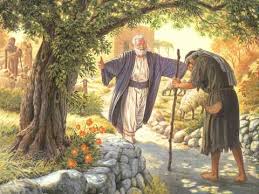
The Prodigal Son (sometimes known as The Lost Son)
Click here to learn more about the parable of The Prodigal Son
_The_Blind_Leading_the_Blind.jpg)
The Blind Leading The Blind
Click here to learn more about the parable of The Blind Leading The Blind
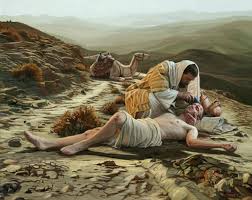
The Good Samaritan
Click here to learn more about the parable of The Good Samaritan

The Sower And The Seed
Click here to learn more about the parable of The Sower And The Seed

The Mustard Seed
Click here to learn more about the parable of The Mustard Seed
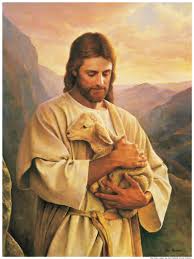
The Lost Sheep
Click here to learn more about the parable of The Lost Sheep
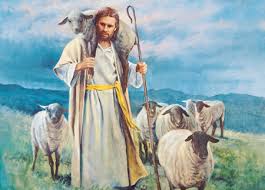
The Good Shepherd
Click here to learn more about the parable of The Good Shepherd
Videos of some of the parables
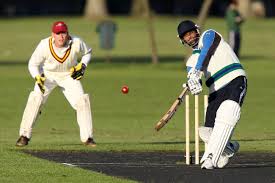
Throughout the summer term we will be continuing to work on our cricket skills.
Watch these videos to develop your knowledge of the rules of the game as well as your cricket technique.
Watch this video to develop your knowledge of the rules of the cricket:
Watch this video to develop your knowledge of correct batting technique:
Watch this video to develop your knowledge of correct spin bowling technique:

Class 5 learnt all about Singapore during International Week 2015. Singapore is interesting because, not only does it have lots of historical links to Britain, it is also very similar to London because they are both international cities that are very multi-cultural.
The class learnt about traditional artwork from the Peranakan community in Singapore and created some Peranakan plates of their own.
The class even entered an online competition, being run in Singapore, to promote and celebrate its multi-cultural society.
They even dressed in colours and outfits to represent the city-state.
As well as celebrating different cultures that are important to themselves and their families.
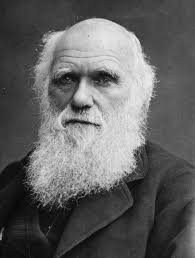
Charles Darwin is one of the most important scientists that ever lived. His Theory of Evolution (briefly, it states that all organisms adapt, or evolve, to suit the conditions found in their habitat) completely changed the way people think about the world. His theory was very controversial when it was first published and it is still strongly debated today.
A good way to understand the theory is to study some examples from nature. Read through the slideshow below to study adaptations in relation to plants.